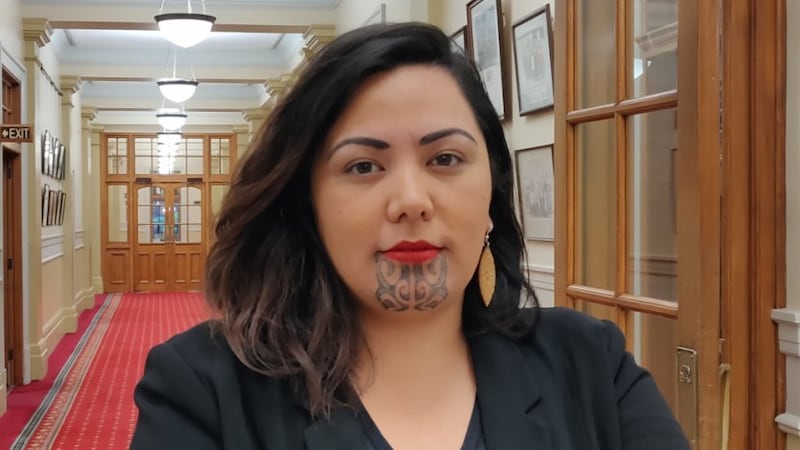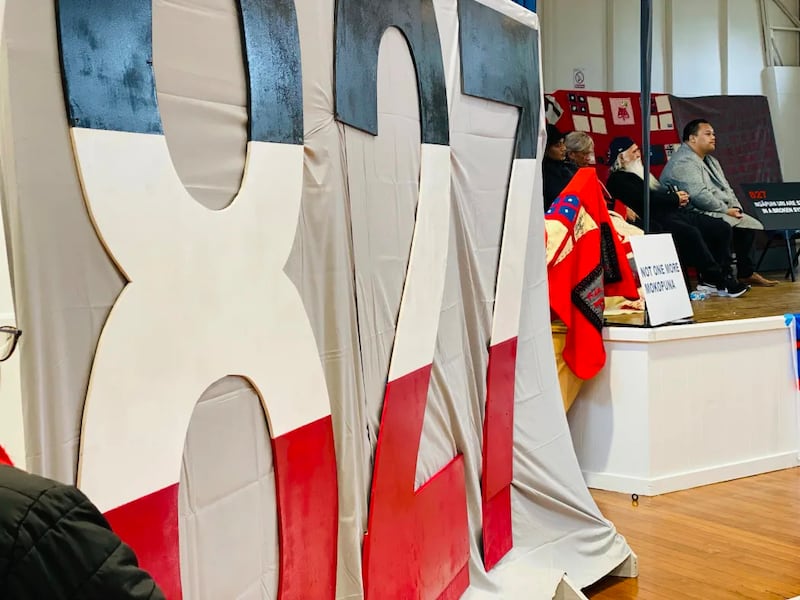The Social Services and Community Select Committee convened today to hear oral submissions on the contentious Oranga Tamariki (Responding to Serious Youth Offending) Amendment Bill, commonly known as the Boot Camp Bill, a proposed initiative aimed at addressing youth crime through rehabilitative programs.
A total of 20 oral submissions were presented, both online and in person, with the majority of submitters opposing the bill. Youth advocates emphasised the need to invest in preventive measures rather than punitive approaches.
Among the submitters, Rukuwai Tipene-Allen told the committee that the due process of the bill was unnecessary.
“As a country, we should be ashamed that so soon after the largest enquiry into state abuse, we are now debating a legislation that will legislate the very conditions that have left generations, particularly Māori, traumatised in state care.”
Tipene-Allen said to Te Ao Māori News that she urges all New Zealanders to be active and take action, whether it be for this bill or all others.

“Ēnei here i roto i tēnei ture he kino rawa atu. Kāore he tika kā puta. Ki te pēnei, tirohia ka mōrearea te āpōpō,”
Another submitter, Sharon Armstrong (Ngāti Kahungunu), team leader for Mahuru Remand Service, said it was important to present in person to oppose the bill, as it directly impacts the values and work of their service.
“One of the main things with our program is we strive not to continue the institutionalisation of our taitamariki, and of course, boot camps will do exactly that.”
Mahuru is a kaupapa-Māori aimed service at reducing the risk of young people re-offending by fostering cultural values and tribal connections.
The Oranga Tamariki (Responding to Serious Youth Offending) Amendment Bill, introduced by government as a response to rising youth crime rates, seeks to establish structured rehabilitation programs for young offenders, emphasising discipline and life skills.
However, Armstrong said the bill will eliminate the significant milestones their program stopped furthering stigmatisation of at-risk youth.
“We are one of the top offenders in our care. We were told it was a risk for him to come to us, but he stayed for 1, which is longer than most. I’m really happy to say he’s out of that youth justice system, and that’s something we all should strive for.”
Māmā rawa te kī ‘he kaihara te rangatahi Māori’
Nō te ata nei tae atu ai te tāhūhu rangapū o Ngāpuhi Social Services, a Moana Eruera, ki mua i te aroaro o te komiti whiriwhiri ki te tuku i āna kōrero taunaki, e kaha whakahē ana i te pire Oranga Tamariki (Responding to Serious Youth Offending) Amendment Bill.

“827 kids in care whakapapa to Ngāpuhi. Kua rere ngā tao kupu a Ngāpuhi mo ngā tamariki ka riro ki ngā hōpuni whakatika rangatahi.”
He rima mineti noa iho i tāpuia ki ngā kaitono katoa ki te tuku i ngā kōrero.
I tōna tikanga, he tekau mīneti te roa o ngā kōrero taunaki ā-waha. Engari, he rima mineti noa iho i whakawātea.
“We travelled from Te Tai Tokerau to be here in person. It’s been a big expense for us to get here, but it’s really important to us.”
Hei tā Eruera, ko te mea nui ki a rātou, me a rātou mahi, ko te haumaru o te tamaiti me te tiaki i a ia.
“Ka tokomaha ake ngā uri o Ngāpuhi ka uru ki ngā hōpuni whakatika rangatahi. Ehara ngā tamariki katoa i te hunga hara.”



